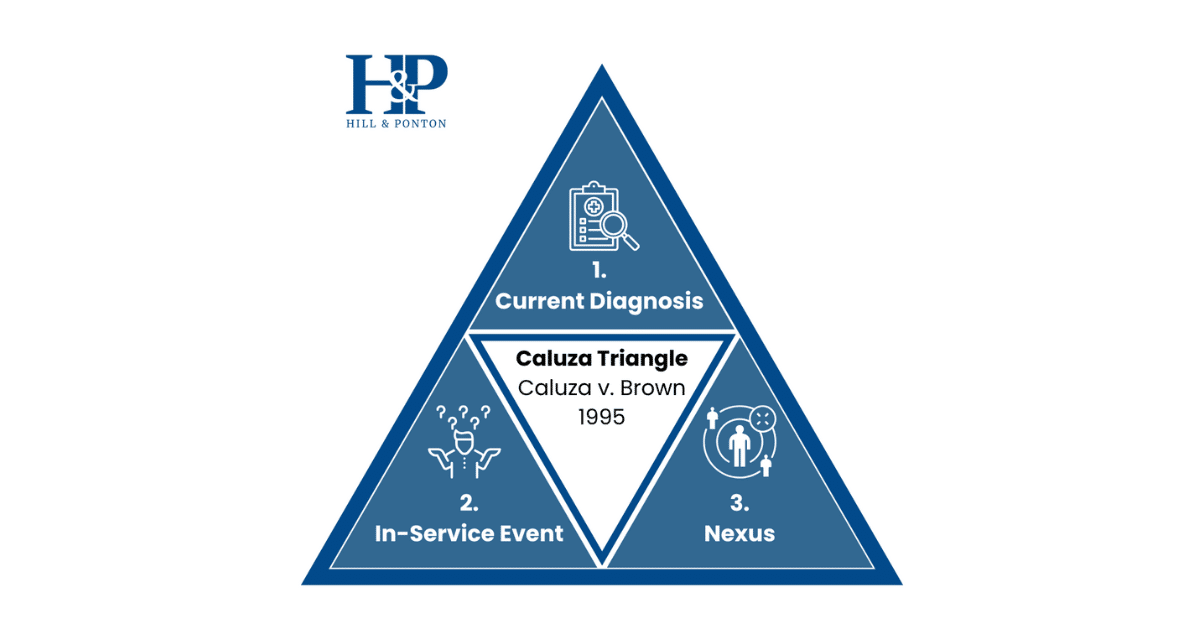If you’ve served in Iraq, Afghanistan, or Syria, you’re all too familiar with the threats posed by improvised explosive devices (IEDs) and explosive formed penetrators (EFPs).
But did you know that some of these threats can be traced back to state-sponsored terrorism, primarily from Iran?
Iran’s government has actively financed and fueled various conflicts affecting our troops, providing weapons, training, and financial support to terrorist groups.
These actions have resulted in grave injuries, lifelong disabilities, and even loss of life among U.S. military personnel.
As troubling as this is, there’s a silver lining.
There exists a fund—known as the United States Victims of State-Sponsored Terrorism Fund—that may provide financial compensation to those affected.
Established by a federal law passed in 2016, this fund aims to offer a degree of justice to the servicemen and women who’ve been victims of such acts of terror.
In this comprehensive blog post, we’ll explore the following topics:
- What state-sponsored terrorism is and how it’s impacting our military
- What the U.S. Victims of State-Sponsored Terrorism Fund is and who qualifies for it
- How to apply for compensation and the types of injuries that make you eligible
- Where the money in the fund comes from and your legal rights as a victim
If you’ve been affected by an IED or EFP in a conflict zone and think you may be eligible for compensation, don’t wait.
Contact Hill & Ponton today for a free, confidential consultation or call 1-888-477-2363.
Understanding your rights and options is the first step towards claiming the compensation you deserve. So let’s dive in.
Background on State-Sponsored Terrorism
When we talk about state-sponsored terrorism, we’re referring to the actions of a country’s government to support terrorist groups, either financially or with resources like weapons and training.
Iran is one of the most notable countries involved in such activities, especially impacting the wars in which U.S. military has been engaged.
Iran’s Role
Following the Iranian Revolution in 1979, Iran’s government has been heavily involved in promoting both domestic and international acts of terrorism.
The Iranian Revolutionary Guard, a branch of Iran’s armed forces, has been particularly active in this.
They’ve provided not just training but also missiles, fuel, and other equipment to terrorist groups.
These actions have led to devastating consequences, especially for our troops serving abroad.
Wars Affected by Iran’s State-Sponsored Terrorism
Iran’s influence extends beyond its borders, affecting multiple conflict zones:
- Iraq: IEDs and EFPs in Iraq have been linked to Iran, causing numerous casualties among U.S. troops.
- Afghanistan: Iran has supported the Taliban, directly affecting U.S. and coalition forces in the region.
- Syria: Iran’s support for various militant groups has escalated the conflict, putting U.S. forces at risk.
They also have a troubling influence in other parts of the Middle East, like Yemen, where they’ve financed and armed the Houthi rebels.
By engaging in these activities, Iran has deliberately targeted U.S. military interests, leading to loss of life and causing severe injuries among our servicemen and women.
Understanding the U.S. Victims of State-Sponsored Terrorism Fund
The subject of compensation for the hardships veterans face due to state-sponsored terrorism may sound complex, but it’s crucial for affected service members and their families.
This is where the United States Victims of State-Sponsored Terrorism Fund comes into play.
What Is It?
In 2016, the U.S. government passed the Justice for United States Victims of State-Sponsored Terrorism Act as part of the Consolidated Appropriations Act.
This established a fund aimed at providing financial relief to U.S. service members, their families, and even hostages from the Iranian crisis, who have suffered due to state-sponsored terrorism.
The law is officially noted under 34 U.S. Code § 20144 and allows eligible individuals to apply for compensation from the fund.
Who Qualifies?
Veterans who have served in wars like Iraq, Afghanistan, and Syria and have been affected by IEDs or EFPs are the primary beneficiaries.
In addition, the family members of soldiers who have been killed because of state-sponsored terrorism may also have eligible claims.
How Much Can You Receive?
The fund allows individual claimants to recover up to $20 million, depending on the specifics of their case and the judgments they have won in a U.S. District Court.
For families with multiple eligible members, the compensation limit is an aggregate of $35 million.
How to Apply
The process involves initially filing a lawsuit against Iran or other state sponsors of terrorism.
Once a judgment is won, the affected individuals or families can apply for compensation from the fund.
Legal expertise is strongly recommended at each step to maximize the chances of a successful claim.
Understanding the U.S. Victims of State-Sponsored Terrorism Fund is crucial for any service member affected by state-sponsored terrorism.
It’s not just about the compensation—it’s about justice for you and your loved ones.
If you believe you or a family member might be eligible for compensation from this fund, reach out to Hill & Ponton today for a personalized consultation.
Types of Injuries Eligible for Compensation
Being in the line of duty exposes service members to a range of risks, and some of the most devastating injuries come from Improvised Explosive Devices (IEDs) and Explosively Formed Penetrators (EFPs).
But what types of injuries can qualify you or a loved one for compensation from the U.S. Victims of State-Sponsored Terrorism Fund?
Shrapnel Injury
These injuries result from pieces of metal or other material propelling through the air after an explosion.
They can cause significant damage to tissues and organs and may require surgical removal.
Traumatic Brain Injury (TBI)
Traumatic brain injuries can range from mild concussions to severe brain damage.
These injuries often require long-term care and can dramatically affect a person’s quality of life.
Amputation
Explosive devices can cause injuries so severe that they lead to the amputation of limbs.
This is a life-altering event requiring long-term rehabilitation and prosthetic support.
PTSD (Post-Traumatic Stress Disorder)
The psychological toll of exposure to terrorist acts can be as damaging as physical injuries.
PTSD affects mental health, professional life, and personal relationships.
These are just some examples; many other injuries could make you eligible for compensation.
The impact of these injuries often extends beyond the individual, affecting families and requiring ongoing care.
Long-Term Impact
Many of these injuries require lifelong medical care and can drastically reduce your quality of life.
They can make it challenging to maintain employment and may strain personal relationships, adding to the emotional and financial burden.
Where Does the Fund’s Money Come From?
You might be wondering how such a significant fund—capable of compensating injured service members up to $20 million each—is sustained.
Understanding where the money comes from provides transparency and may offer some peace of mind about the fund’s legitimacy and stability.
Financial Institutions as Contributors
Several banks have been found guilty or have pleaded guilty to conspiring with governments like Iran to facilitate acts of terrorism.
The penalties these institutions have faced contribute directly to the fund. Some notable banks include:
- Toronto-Dominion Bank
- Barclays PLC
- Credit Suisse AG
- BNP Paribas A.B.
- HSBC Holdings PLC
- And many others
Corporate Penalties
Besides banks, various corporations have violated sanctions against Iran and other countries sponsoring terrorism.
These companies have also had to pay civil penalties that go directly into the fund, bolstering its financial capabilities to compensate victims.
Monitoring and Transparency
For added transparency, the U.S. Victims of State-Sponsored Terrorism Fund maintains a list of contributing companies and banks on its website, which is updated for each fiscal year.
Current Status of the Fund
While the fund is backed by penalties and contributions from reputable organizations, it’s essential to acknowledge that geopolitical tensions could impact its stability.
Therefore, the sooner you apply for your rightful compensation, the better.
Understanding where the fund’s resources come from can lend assurance to the process and help you realize that compensation is not just a possibility, but a reality for many who have suffered.
If you’re contemplating whether to take legal action for your injuries, knowing that a well-backed fund exists should give you the confidence to proceed.
Contact Hill & Ponton today for a free, confidential consultation or call 1-888-477-2363.

Legal Rights of Injured Veterans and Families
If you or a loved one has been injured due to state-sponsored terrorism, it’s critical to know your legal rights.
Understanding these can help you navigate the complex legal process and ensure you get the compensation you deserve.
Right to Sue
According to 18 U.S. Code § 2333, U.S. citizens who have suffered injuries, or the estates and families of those who were killed as a result of state-sponsored terrorism, have the right to file lawsuits.
These lawsuits can be filed against any individual, organization, or country that has provided support to state sponsors of terrorism.
Winning Judgments and Compensation
Once you secure a judgment against responsible parties, you become eligible to apply for compensation from the United States Victims of State-Sponsored Terrorism Fund.
This is a significant step in ensuring that justice is served and that you receive the help you need for recovery.
Time Sensitivity
The legal process can be lengthy, and with potential geopolitical changes, there’s a degree of uncertainty about the fund’s future availability.
Acting quickly can be crucial to securing your compensation.
Professional Legal Assistance
Navigating this legal landscape can be challenging and stressful, especially if you’re also dealing with the aftermath of injuries.
Experienced legal representation can make a difference in the outcome of your case.
Types of Compensation Available
The compensation you might receive isn’t just a single, lump-sum amount. It can cover various types of damages and losses you’ve suffered.
Below are the elements that might constitute your total compensation package.
Medical Expenses
You can claim for both past and expected future medical expenses.
This includes hospital stays, medications, surgeries, physical therapy, and any specialized equipment you might need.
Loss of Income
Loss of wages—both past and future—can also form part of your compensation.
This can include time off work for recovery or, in severe cases, loss of ability to work altogether.
Pain and Suffering
Non-economic damages like physical pain, emotional distress, and suffering can also be part of the compensation.
These are more subjective and vary from case to case.
Loss of Consortium and Relationships
If your injuries have negatively impacted your relationship with your spouse or family, you might be entitled to compensation for loss of consortium or companionship.
Wrongful Death Claims
For families of deceased veterans, claims can include funeral and burial expenses, lost rights of inheritance, and other related damages.
Other Damages
Additional damages may include disfigurement, disability, and any other losses that can be quantified financially.
Knowing the range of damages you can claim will better prepare you for the legal process and give you a comprehensive understanding of what compensation could mean for you.
If you want a personalized breakdown of what types of compensation you may be eligible for, contact Hill & Ponton today for a free, confidential consultation or call 1-888-477-2363.

The Importance of Acting Quickly
Time waits for no one, especially when it comes to legal matters related to state-sponsored terrorism.
Here’s why it’s crucial to initiate your claim process as soon as possible.
Statute of Limitations
Every legal claim has a time limit known as the “statute of limitations.”
If you don’t file your lawsuit within this timeframe, you may lose your right to pursue compensation forever.
The exact period can vary, so consult a legal advisor to determine the limitations for your specific case.
Geopolitical Instability
The international landscape is ever-changing, especially with countries known for sponsoring terrorism.
A shift in political relations could impact the availability of funds set aside for victims, making it crucial to act quickly.
Fund Availability
While the United States Victims of State-Sponsored Terrorism Fund is designed to compensate victims, there’s no guarantee that the fund will always be sufficiently supplied.
Acting quickly increases your chances of securing a share.
Gathering Evidence
As time passes, essential evidence that could support your claim may become more challenging to collect.
Prompt action can help preserve this vital information.
Emotional and Financial Relief
The sooner you act, the sooner you could receive the financial support you need, relieving a substantial emotional and financial burden for you and your family.
How to Initiate Your Claim: A Step-By-Step Guide
Securing compensation may seem like a daunting task, but with the right support and guidance, it can become a manageable process.
Here’s how to go about it.
Consultation with a Legal Expert
The first step is to consult with an attorney experienced in cases of state-sponsored terrorism and military injuries.
They can provide you with the insights you’ll need to understand the merits of your case.
Collecting Necessary Documentation
Your attorney will help you identify and gather the necessary documents, such as medical records, military service records, and any evidence related to the incident that led to your injuries.
Filing the Lawsuit
Once all the documentation is in place, your attorney will file a lawsuit on your behalf against the responsible parties, be it a nation-state or a corporation that aided in state-sponsored terrorism.
Litigation and Settlement Talks
After the lawsuit is filed, both parties may enter into settlement discussions.
If a settlement can’t be reached, the case will go to trial.
Winning the Case
If you win the case, a judgment will be issued in your favor.
This judgment is what qualifies you to apply for compensation from the United States Victims of State-Sponsored Terrorism Fund.
Applying for Compensation
With a favorable judgment, you can then apply for compensation from the fund.
Your attorney will guide you through this application process to ensure it’s done correctly.
Receiving Compensation
Once your application is approved, you’ll receive the compensation you’re entitled to, providing you with some financial relief and acknowledgment for your suffering and losses.
Frequently Asked Questions (FAQs) About the U.S. Victims of State-Sponsored Terrorism Fund
Knowledge is power, especially when navigating the complexities of a legal process.
Here are answers to some commonly asked questions about seeking compensation from the U.S. Victims of State-Sponsored Terrorism Fund.
What Qualifies as State-Sponsored Terrorism?
State-sponsored terrorism includes acts of violence backed by a foreign government. In the context of this fund, the focus is primarily on injuries sustained due to IEDs and EFPs in conflicts partially funded by states known for sponsoring terrorism.
Who Is Eligible to Apply for Compensation?
U.S. service members who were injured, or their families in the case of deceased service members, due to state-sponsored terrorism can apply.
However, certain criteria must be met, including a favorable judgment from a U.S. District Court.
How Much Compensation Can I Expect?
The compensation varies depending on the severity of injuries and other damages.
Individual claimants may be eligible to recover up to $20 million, while families may be limited to an aggregate of $35 million, depending on court judgments.
What Types of Injuries Are Covered?
The fund covers various types of injuries, including but not limited to shrapnel injuries, traumatic brain injuries (TBIs), amputations, and PTSD.
How Do I Start the Application Process?
The first step is to consult with an experienced attorney who can guide you through the legal process, from filing a lawsuit to applying for compensation from the fund.
How Long Does the Process Take?
The duration varies from case to case and may take months or even years, depending on various factors like court schedules and the complexity of the case.
Can I Apply If I Already Received a Settlement?
That depends on the specifics of your settlement and how it relates to the fund’s rules.
It’s best to consult with an attorney to assess eligibility in such scenarios.
Thank you for taking the time to read this important guide. If you or a loved one has been affected by state-sponsored terrorism, we encourage you to take action.
Your sacrifice should not go unrecognized, and justice should be served.
Don’t navigate this journey alone. Hill & Ponton is committed to assisting you every step of the way. Contact Hill & Ponton today for a free, confidential consultation or call 1-888-477-2363.





